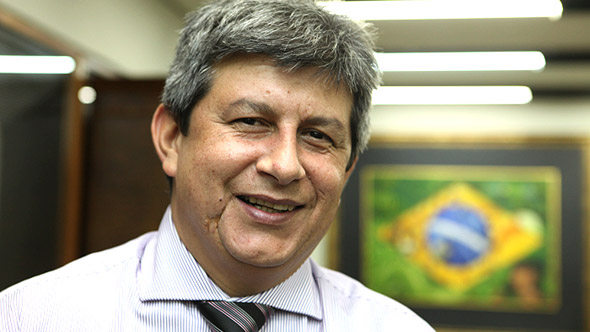Industry in Piauí: Industrial Development of the Northeast
Antonio Jose de Moraes Souza Filho, President of FIEPI (Federation of Industries of Piauí) and Vice-Governor of Piauí
The President of the Federation of Industries and Vice-Governor of Piauí, Antonio Jose de Moraes Souza Filho, talks about the industry and the measures that need to be taken to improve the sector in Piauí.
Interview with Antonio Jose de Moraes Souza Filho, President of FIEPI (Federation of Industries of Piauí) and Vice-Governor of Piauí

Which are the programs to improve the competitiveness of industries that you are internally working on?
In Piauí, the areas with real potential are the agroindustry, the mineral, the fruit-growth and the tourism sectors, as well as all that is related to exportation.
The Piauí State has two important sectors: construction and textile. These are the two sectors that are employing more people, and our biggest difficulty is to prepare and qualify people for these two sectors.
We have several difficulties that we need to overcome. We need to have quality energy, so that industries can work well, and we have to answer in terms of roads and several other investments that the State still has to make, so that these companies can gain in competitiveness.
What sort of reforms have to be adopted to improve these industries?
What we need to do, in a fast way, is the tax reform. In the way we are working today, there is a tax war between States, where the wealthier states are going to be even richer. If we don’t adopt a tax adjustment, a reform equal for everybody, we are never going to reach the expected development and, in my point of view, the State must play an active role, it has to provide guidance for the governmental actions that can make these industries have a balance point that allows our industries to compete at the same level as the ones in São Paulo.
What is the main role of your institution and with which results would you be satisfied?
The major role of the institution is to defend the interests of the class, the companies and industries that we represent before the State Government, taking the difficulties that these people have and trying to decrease that distance that we still face nowadays. What we would really like to see happening is that: the tax reform, with a fair tax burden. This will allow us to have a more dynamic industry.
There are a lot of roads in a very bad state, our railroad network is very incipient and all that keep us at some distance from the big centres and from the big companies. We want to have the same opportunity to be able to compete.
What are the major internal and external challenges you face: the strong Real, the inability to change the political system or the difficulty in getting financing from the Federal Government?
That’s what I’ve been talking about: the most important challenge is really the tax reform. We can’t draw external investment without stability. Nowadays, and with the European crisis, many companies are coming here and settling here in Brazil. We have to think about the incentives we want to offer them but, at the same time, we can’t forget about the Brazilian industry. Many times foreign companies arrive here bringing more modern technology, more well prepared people and, it’s not a question of wanting or not these companies to settle here, but we need to protect our national industries also.
Today the Brazilian Real is a strong currency, we don’t own anything to the IMF anymore, we are lending money, we have been investing in several countries, mainly in South America.
What has been the evolution of your members and how important is industry in Piauí?
At a national level, our industry is almost insignificant but we’ve been growing above average, due to what is being discovered here. China, for example, has its eyes in Piauí, because their greatest problem is the lack of food and of land to plant, and we have that potentiality.
Which companies will perform well and which are going to underperform in Piauí?
The areas with real potential are the agroindustry, the mineral, the fruit-growth and the tourism sectors, as well as all that is related to exportation.
Imagine that a small or medium enterprise somewhere in Europe knows that something big is happening in Brazil. What would be your message about Piauí to capture their attention?
I would alert them about the infrastructure that the Government is developing, for example the improvements in the electrical power issue, the law of tax incentives that has been approved recently, and also our existing potentiality. We have inexpensive, good, non-striking, easily trained labour and we are the Brazilian State that is closer to Europe and one of the closest to the USA: we are 5 flying hours away from Portugal. We are also finishing the construction of the São Luís Correia harbour, which will lower the price of transport. If we are also able to interconnect the north to the south through the railway to the São Luís Correia harbour, we are going to make life easier to the mineral and agroindustry companies that are already there and the ones that will come. The ones that want to grow and earn money have to think about Piauí first, because it’s a virgin territory ready to be transformed.
If Piauí seems like a paradise, why aren’t they all coming here?
Due to the reasons I’ve mentioned before: due to all things that the Government is trying to accomplish: the improvement of electricity, the improvement of the roads, which is all being done now.
Have you been able to see any difference or evolution in terms of FDI (Foreign Direct Investment)?
No, it’s a very indelible difference. There is a lot of national investment. As far as foreign investments go, there is only speculation.